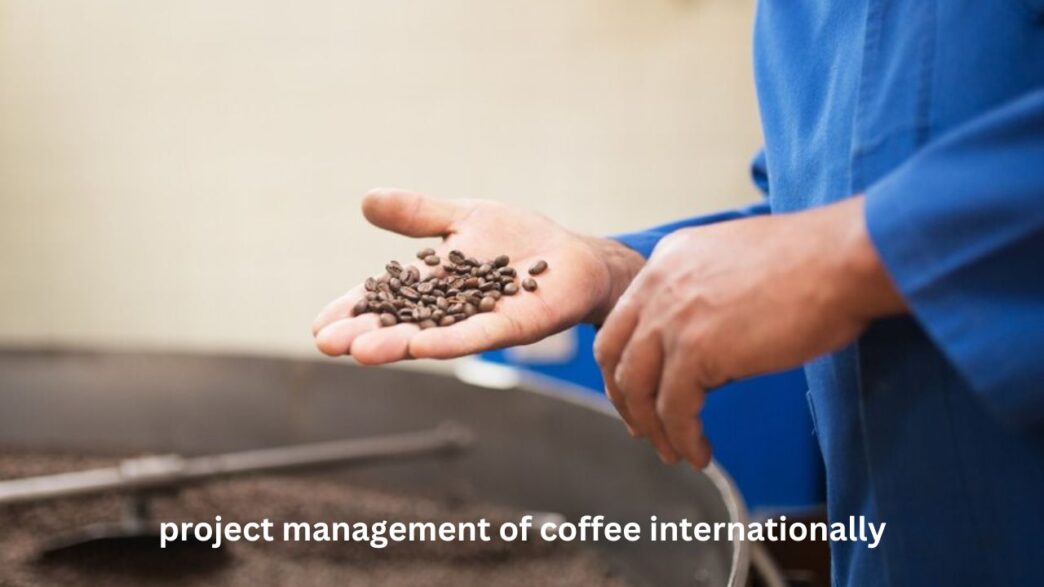The project management of coffee internationally involves overseeing every stage of the coffee lifecycle, from production at origin to delivering the final cup. Managing this process across global borders requires balancing cultural nuances, logistical challenges, market demands, and quality assurance. Coffee is one of the most traded commodities worldwide, making effective project management essential for success in this competitive industry.
In this article, we will explore the intricacies of managing coffee projects on an international scale. From sourcing beans to ensuring fair trade practices, we’ll cover the various elements that make this process both challenging and rewarding.
Understanding the Global Coffee Industry
The global coffee industry spans multiple continents, with production concentrated in regions like Latin America, Africa, and Southeast Asia. Each region contributes unique flavors, aromas, and characteristics to the coffee market. Effective project management ensures these distinct qualities are preserved and delivered to consumers worldwide.
This global industry relies on a network of stakeholders, including farmers, exporters, roasters, distributors, and retailers. Coordinating these players across time zones and borders requires a clear plan, efficient processes, and adaptable strategies.
The Importance of Project Management in the Coffee Supply Chain
Without project management, the coffee supply chain could easily become disorganized. From the farm to the consumer, managing coffee internationally involves several critical elements:
- Farm-Level Operations: Ensuring sustainable farming practices, equitable wages, and proper harvesting methods.
- Logistical Coordination: Organizing transportation, warehousing, and customs clearance for beans traveling across international borders.
- Quality Assurance: Maintaining consistent standards for grading, roasting, and packaging to meet market expectations.
- Market Analysis: Understanding consumer preferences and adapting to trends in different regions.
- Fair Trade Compliance: Ensuring ethical practices at every stage to support farmers and workers in developing countries.
These components highlight the need for experienced project managers capable of handling the complexities of coffee production and distribution.
Key Steps in International Coffee Project Management
To successfully manage coffee projects internationally, businesses must follow specific steps designed to streamline operations and maximize efficiency. These steps include:
1. Planning the Coffee Lifecycle
Before launching a coffee project, companies must identify their objectives, such as target markets, product types, and quality benchmarks. Planning also involves budgeting for farming costs, shipping fees, and marketing expenses.
2. Sourcing High-Quality Beans
Selecting the right coffee beans is crucial for delivering a premium product. Project managers often travel to coffee-growing regions to build relationships with farmers and cooperatives. Ensuring traceability from farm to cup builds trust and transparency.
3. Managing International Logistics
Transporting coffee internationally requires meticulous planning to avoid delays, contamination, or losses. Managers must coordinate with shipping companies, customs officials, and local distributors to streamline the process.
4. Ensuring Sustainable Practices
Modern consumers demand environmentally friendly products. Project managers integrate sustainability initiatives, such as reducing carbon emissions and promoting organic farming, into their operations.
5. Monitoring Quality at Every Stage
Quality control involves inspecting beans for defects, ensuring proper roasting techniques, and verifying the freshness of packaged coffee. Consistency is key to building brand loyalty in international markets.
Challenges in the Project Management of Coffee Internationally
Managing coffee projects on a global scale comes with unique challenges that require innovative solutions. Here are some of the most common obstacles:
1. Fluctuating Coffee Prices
Coffee prices are heavily influenced by global markets, weather patterns, and geopolitical factors. Managing costs while maintaining profitability requires careful planning and risk management.
2. Supply Chain Disruptions
Natural disasters, political instability, or logistical failures can disrupt the supply chain. Project managers must create contingency plans to address these risks.
3. Cultural and Legal Differences
Working with farmers, distributors, and retailers across different countries means navigating varying cultural expectations and legal requirements.
4. Maintaining Consistency
Managing coffee quality can be difficult due to environmental variations, such as altitude, rainfall, and soil conditions. Project managers must ensure consistency despite these challenges.
5. Ethical Sourcing
Ensuring that farmers and workers receive fair wages and operate under humane conditions requires regular audits and compliance checks.
The Role of Technology in Managing Coffee Projects
Modern technology has revolutionized the project management of coffee internationally. Several tools and innovations now support seamless operations:
- Blockchain for Traceability: Blockchain technology provides a transparent and tamper-proof record of the coffee’s journey from farm to consumer.
- IoT Sensors: Internet of Things (IoT) devices monitor storage conditions, such as humidity and temperature, to preserve coffee quality.
- AI for Market Analysis: Artificial intelligence analyzes consumer behavior and market trends, helping businesses adapt their strategies.
- Logistics Platforms: Digital platforms optimize shipping routes, track shipments in real-time, and reduce transportation costs.
- Mobile Apps for Farmers: Apps allow farmers to access weather forecasts, market prices, and farming advice, empowering them to improve yields.
By leveraging these tools, project managers enhance efficiency and improve outcomes throughout the coffee supply chain.
Sustainability in the Coffee Industry
Sustainability is a critical component of coffee project management. Consumers increasingly demand ethically produced coffee, and businesses must address environmental and social concerns to remain competitive. Sustainable practices include:
- Supporting Fair Trade: Partnering with organizations that certify fair wages and working conditions for farmers.
- Reducing Carbon Footprint: Minimizing emissions by optimizing shipping routes and transitioning to renewable energy sources.
- Promoting Agroforestry: Encouraging farmers to grow coffee alongside other crops to preserve biodiversity and improve soil health.
- Eliminating Single-Use Plastics: Using biodegradable or recyclable materials for coffee packaging.
Sustainability not only benefits the environment but also strengthens brand reputation and consumer loyalty.
Quality Control in International Coffee Management
Maintaining quality is a top priority in the project management of coffee internationally. Here’s how project managers ensure high standards:
- Bean Grading: Inspecting beans for size, shape, and defects to meet export standards.
- Roasting Profiles: Tailoring roasting techniques to bring out unique flavor profiles for different markets.
- Cupping Sessions: Conducting sensory evaluations to assess aroma, acidity, body, and taste.
- Freshness Testing: Monitoring packaging and storage conditions to prevent flavor deterioration.
These processes ensure that every cup of coffee meets the expectations of global consumers.
The Importance of Relationships in Coffee Project Management
Strong relationships form the backbone of successful coffee projects. Building trust and collaboration across the supply chain ensures smooth operations. Here’s how project managers foster relationships:
- Partnering with Farmers: Fair pricing and long-term contracts motivate farmers to maintain high-quality standards.
- Collaborating with Distributors: Transparent communication with distributors ensures timely delivery and market penetration.
- Engaging with Consumers: Social media, branding, and storytelling connect consumers with the journey of their coffee.
By investing in relationships, businesses create a supportive network that drives success.
Emerging Trends in International Coffee Project Management
The coffee industry continues to evolve, with new trends shaping the way projects are managed. Key trends include:
- Specialty Coffee Growth: The demand for high-quality, single-origin coffee has created opportunities for niche markets.
- Direct Trade Models: Eliminating intermediaries allows businesses to work directly with farmers, improving transparency and profitability.
- Cold Brew Popularity: Expanding into cold brew products opens new revenue streams for coffee companies.
- Carbon-Neutral Operations: Achieving carbon neutrality has become a competitive advantage for environmentally conscious brands.
- Subscription Services: Offering subscription-based coffee delivery builds customer loyalty and generates recurring revenue.
Adapting to these trends ensures businesses remain relevant in a competitive landscape.
Frequently Asked Questions
What is the role of project management in coffee production?
Project management ensures smooth coordination between farmers, exporters, roasters, and retailers while maintaining quality and meeting market demands.
How do project managers maintain coffee quality internationally?
They implement grading, roasting, and packaging standards while monitoring storage and transportation conditions to preserve freshness.
Why is sustainability important in coffee management?
Sustainability reduces environmental impact, supports farmers, and aligns with consumer demand for ethically produced products.
What challenges do international coffee projects face?
Fluctuating coffee prices, supply chain disruptions, cultural differences, and quality control are common challenges in managing coffee internationally.
How does technology support coffee project management?
Technology improves traceability, optimizes logistics, provides real-time data, and supports farmers with tools for better crop management.
What are the emerging trends in the coffee industry?
Specialty coffee growth, direct trade models, carbon-neutral operations, and subscription services are shaping the future of coffee management.
Conclusion
The project management of coffee internationally combines strategic planning, cultural understanding, and technological innovation to deliver high-quality coffee to consumers worldwide. Managing this process involves coordinating farmers, logistics teams, and distributors while ensuring ethical and sustainable practices. By addressing challenges, leveraging technology, and adapting to industry trends, project managers play a pivotal role in the success of the global coffee industry.
Effective project management not only supports economic growth but also promotes environmental conservation and social equity. As the coffee industry continues to grow, embracing innovative strategies and sustainable practices will drive success in this dynamic field.







